Editor’s Note: This piece was a finalist in the Pulse writing contest, “On Being Different.”
“David, from this moment forward, you’ll need to listen with your heart.”
It’s been forty years since I heard these words, but they ring as clearly in my mind as if it were yesterday.
My night nurse, Jill, whispered them into my left ear—the only one still able to hear after my fourteen-hour brain surgery to remove a tangerine-sized growth from the acoustic nerve, which affects hearing and balance.
“You know that you’ve lost your hearing in that right ear,” she went on. “I also have to let you know, David, that your right tear duct is now unable to produce tears, your vocal cords are not functioning properly, and you’ll need to relearn how to walk and talk with ease.”
My neurosurgeon had warned me about these possible undesirable outcomes, and I was beginning to adjust, mentally, at least, to my new reality. Jill’s words—”listen with your heart”—felt unexpected and startling, even downright puzzling, but they also helped me to feel somewhat content.
In the months that followed, my clinicians at the speech-and-hearing clinic provided support for my new life, in ways that reinforced Jill’s perspective.
My twice-weekly clinic visits featured exercises to tighten up my drooping face, then walking exercises that prepared me to take my initial baby steps, inching along the clinic’s hallways.
Then, one very fine day, a nurse greeted me with this welcome proclamation: “Hey, David, it’s time to reclaim your voice! You’ll enjoy getting reacquainted with your favorite words.”
I loved my reunion with words; during my months with the marvelous speech coaches, I felt myself coming back alive. Eventually, they taught me how to sing again! That was a turning point in my recovery: Joyfulness began to return.
Because of my uncommon health circumstances, my life had changed. Having become a different physical “me” as a result of the surgery, I also felt transformed by the way I was seen and cared for by my medically skilled and amazingly kindhearted caregivers.
I felt grateful awe for the ways in which each member of my healthcare team always kept my unique medical needs front and center. Everyone was keenly aware of each next step and how it would require their expertise and attentiveness. But it was their compassionate approach to my experience of loss, such as needing to relearn ordinary tasks like shaving my drooping face, that affected me the most.
I cherished each member of my team. One day, feeling especially impressed with their exquisite attentiveness, I told them: “You’re such artists. You make dispensing your love medicine look so easy! I want to bundle you all up and take you home with me. You’re the stars in my personal heaven.”
On hearing this, they broke into song and dance, and I propelled my wheelchair into their midst as we shared the exuberant, ecstatic moment.
I felt truly known by Jill and by the speech-and-hearing clinicians; I knew that they valued me as they helped me to move into my new, next life. Their healing approach—their welcoming ways—affirmed me as a person with a different body, mind and heart.
Yes, I am different. But I’m not being considered as different, I mused. I don’t feel different; I feel special!
Unexpectedly, an awareness of other people with health challenges, who were also outside the mainstream, began to awaken within me. Reflecting on being so lovingly seen and treated by my caregivers, I felt a desire stirring to pass along my good fortune to others.
I’d been introduced to an incredibly empathic way of living. My care team had listened to me with their hearts. I wanted to emulate their way of living—to listen and live more fully with my own heart.
This led me to wonder: As I live my life now, might I be able to offer others an adaptation of the form of caring I’ve received?
I realized that I’d like to give that special feeling to my family, friends and neighbors—even to people I didn’t know. I’d always been a pretty good listener, but now I wanted to listen deeply to other people. I wanted to wholeheartedly concentrate on what they shared with me. I wanted to see to it that others who passed my way felt known and valued in the ways that I had been.
These days, I try to bring this intention into my interactions with each person I encounter, whether they’re a family member, a store clerk or a fellow patient.
It’s my belief, for instance, that most of us appreciate being known by our given or chosen name; so when greeting people, I use first names. If I don’t know a person’s given or chosen name, I find noninvasive ways to learn and call them by name. Then, if the situation allows, I carefully listen to whatever the person shares with me, trying to attune myself to this person, here and now. I believe that we all welcome those who listen to us genuinely and deeply. Whenever possible, I allow an extra hour after my regular medical appointments so as to greet and sit with fellow patients at our hospital. I try to offer them whatever might be received as a welcome kindness.
Over the years, being different has lost its initial sting, its overwhelming quality. Mostly, I have adjusted to my loss of hearing and easy movement. My drooping features now resemble those of many other people as we all age. My deficits, although still bothersome, have, for me, been transformed into gains.
Looking back, I know that I didn’t simply ease into accepting what I now remember as “Jill’s invitation.” I didn’t immediately understand the full significance of her words, or the care of my speech-and-hearing team. Initially, I perceived them as simple encouragement.
Over time, though, I’ve realized that Jill gave me an incomparable gift: Right after my surgery, her guidance supported my transition into the world of the differently abled; and in the decades since, it has brought me closer to being my “better self.”
It’s taken me all of these past forty years to live into those words and that care, gradually transforming them into a way of relating empathically with the people I encounter day after day. My way of listening, caring and showing compassion has ripened ever so gradually and continues to grow.
For me, learning what’s genuinely important and vital, and acting on that knowledge, has taken a lifetime of living differently.


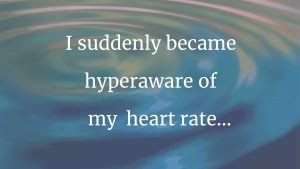
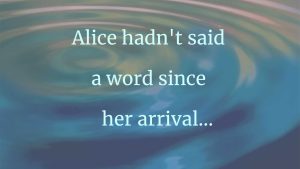
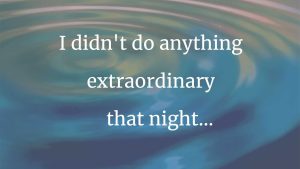
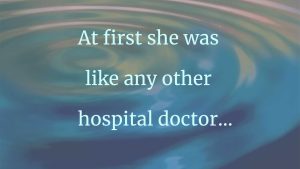
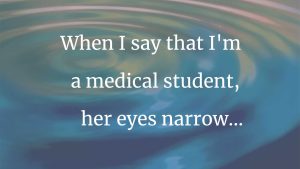
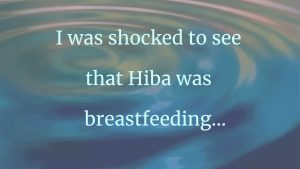
7 thoughts on “Another Way to Listen”
Thank you dear cousin, for writing this and sharing it with us. You have chosen a life path that accepts and appreciates and also lives in the moment most meaningfully.
It’s a positive life lesson for us all. You remind me of dear Clif; your gentle, gentile and artistic uncle who exemplified optimism and kindness. Continue to be so well~~
David,
Your beautiful portrayal of encountering and going through a significant life changing event touched both my mind and heart. Since the time I met you, I knew that your life of gentle kindness and deep listening was shaped by something very transformative that brought you to a deeper compassion and understanding of others. This essay confirms what I suspected. Your words have the power to encourage and help others like me grow in the virtues you so ably live through. Blessings on you, dear friend. Wishing you many more years of life and happiness!
Thank you so much for this beautiful piece of writing and living, David. As one who has known you for over two decades, I can testify that you do indeed listen with your heart. Your life-affirming and transcendent spirit has made a very big difference for so many people who’ve had the good fortune of time with you. Blessings on your continuing journey, dear friend!
Having others really hear us and give support is a fantastic gift. Thanks for writing this,
What a beautiful, optimistic story! I think we should all listen with—and act from—our hearts to create a kinder world.
David – As my teacher Rachel Naomi Remen would ask, “Are you a story teller or a story listener?” You are obviously both! How wonderful that your story of loss and recovery has shown another light on the beauty of medicine, the compassion of people who are in this profession, and the positive impact of a few simple words.
I am just about to begin reading a book, The Butterfly Cage, by Rachel Zemach, who lost her hearing at age 10. Rachel went on to become a teacher, both in a hearing public school and in a school for the deaf, and her book shares her journey and the lessons she learned along the way. She introduced me to a word – audism – the bias which is present against another form of invisible disability. Having read just the Introduction, Acknowledgements and Prologue, I am excited to read the actual stories she shares, as her enthusiasm for this topic is very evident.
Thank you for sharing your story.
I hear that you were a finalist in the writing contest, but to me you’re a winner. Your grace in transition is exquisite.